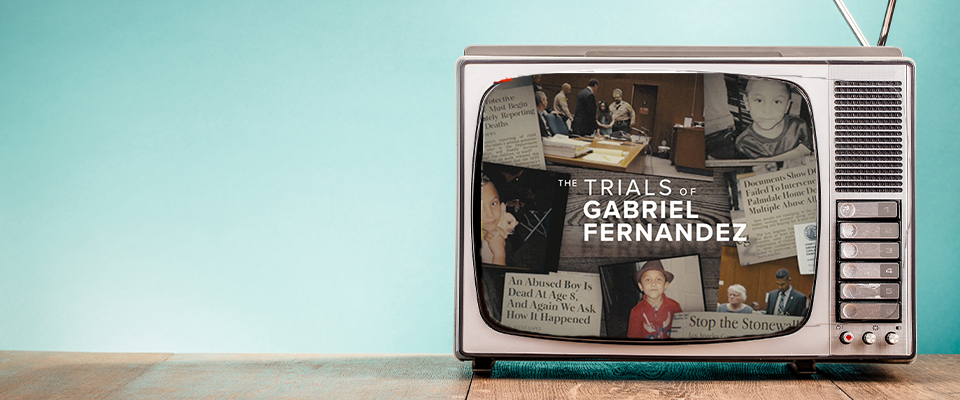Our editors have curated a list of entertainment to indulge in this summer. Here are their top picks of books, documentaries, and more, all produced by UC Berkeley faculty and alumni.






The Return of Cal Performances
For the first time since March of last year, Cal Performances has opened its (physical) doors. And the 2021–2022 performance lineup is filled with incredible talent.
“When the pandemic forced Cal Performances to close its doors in March 2020, no one could have imagined what kind of year lay ahead,” said Jeremy Geffen, executive and artistic director of Cal Performances, in a June announcement video. “[But] we have dedicated our work to the idea that the arts can and must play an important role in how we face today’s challenges.”
After a year of online shows with Cal Performances at Home, the in-person return kicked off on August 21, with a special event by the musicians of the original Goat Rodeo Sessions—Yo-Yo Ma, Stuart Duncan, Edgar Meyer, and Chris Thile. The next performances will begin in early October, including Ballet Hispánico, jazz prodigy Matthew Whitaker, and the Mahler Chamber Orchestra with magisterial pianist Mitsuko Uchida.
Audiences can enjoy concerts ranging from dance or music recitals to theater and programming for this season’s Illuminations series, “Place and Displacement,” which combines performing arts and community conversations on the subject of large movements of people and inequity around the world. “Displacement has been part of our common history as human beings on this planet,” said Beninese singer and Cal Performances’ 2021–22 artist-in-residence, Angélique Kidjo. “Art becomes a form of resistance.”
“Nothing—absolutely nothing—can stop the performing arts,” Geffen said in June. “And we can’t wait to share it all with you throughout the coming year—as we go from ‘Cal Performances at home,’ to ‘Cal Performances is home.’”
Ticket sales and scheduling for the 2021–22 season can be found on the Cal Performances website.
—Wyatte Grantham-Philips
Czesław Miłosz: A California Life
By Cynthia L. Haven
Coming in late October from Heyday Books, this new title about Czesław Miłosz (1911–2004), Berkeley’s only Nobel laureate in literature, purports to be the first to view its subject through the lens of the poet’s adoptive state. Miłosz spent four decades in exile from Poland, much of it as a professor of Slavic languages and literature at Cal. His tenure (1960–89) was marked by complicated feelings toward California and the counterculture that grew up around it. As the Berkeley Historical Plaque Project notes, Miłosz, who had fled Soviet oppression, “at first supported the student Vietnam anti-war protests, but eventually he distanced himself due to what he perceived as the protestors’ naive pro-marxist ideology.” If he sometimes felt alienated from the cultural milieu, he nevertheless felt grounded by his vantage point in the Berkeley Hills, where he lived and wrote. In Visions from San Francisco Bay, Miłosz wrote, “There are many cities and countries in my mind, but they all stand in relation to the one that surrounds me every day.” Awake or dreaming, he continued, “the four corners of the world begin with the forms almost within reach of my hand.” Author and literary critic Cynthia L. Haven knows her subject well. Her previous books include An Invisible Rope: Portraits of Czesław Miłosz and Czesław Miłosz: Conversations.
—Pat Joseph
Finding the Right Words: A Story of Literature, Grief, and the Brain
By Cindy Weinstein, Ph.D. ’89
At 58, Cindy Weinstein is the same age her father was when he was diagnosed with early-onset Alzheimer’s. She learned of his diagnosis as a graduate student at Berkeley. While devastated, she didn’t yet have the strength or the words to process her grief. Thirty-three years later, she is finally ready to face it. Finding the Right Words tells the story of a daughter’s struggle to understand her father’s disease, which robbed him of his memories as well as his ability to read, write, and speak. Through anecdotes from life pre- and post-diagnosis, Weinstein paints a loving and often poignant picture of their relationship as the disease progressed. With the addition of scientific explanations of the pathology from UC San Francisco neurologist Bruce Miller, Weinstein’s book acts as both a goodbye to her father and a guide to others dealing with similar loss.
—Margie Cullen
Add to Cart
SuChin Pak ’97
Ostensibly a podcast about what’s worth buying, Add to Cart brings together veteran journalist (and Cal alumna) SuChin Pak and comedian-writer-director Kulap Vilaysack for a free-form discourse on consumerism and everything that we buy—or buy into.
Which products are worth the financial and emotional investment? And what do these purchases say about who we are? Each week, topics of conversation range from dependable Poise bladder leakage pads or highly rated sex pillows, to critical discussions about the impacts of societal beauty standards, police violence, and anti-Asian hate.
As Pak wrote on Instagram last December: “Who knew that talking about what we buy could lead to so much laughter and at times heartfelt truths about our childhoods, how we grapple with our identity as Asian American women and as conscious (& sometimes impulsive) consumers.”
Add to Cart premiered in November 2020. Episodes are released on Tuesdays and can be found across streaming platforms including Spotify, Apple Podcasts, and RadioPublic.
—Wyatte Grantham-Philips
Contested Ground: How to Understand the Limits on Presidential Power
By Prof. Daniel A. Farber
There has been no shortage of reporting on the lawfulness, or otherwise, of presidents’ actions while in office. Headlines like “Can President Trump Pardon Himself and His Family?” and “Fact Check: Can the President enact a nationwide mask mandate?” seem to highlight the general murkiness, no matter who is in the White House, regarding presidential authority. In the end, does anyone really know what, exactly, presidents can and can’t do, by law?
This is the question Berkeley Law Professor Dan Farber seeks to answer in his new book from UC Press, which he describes as a “roadmap” to understanding the often ambiguous rules around executive power. The road isn’t always clearly marked. Even Farber, a pre-eminent constitutional scholar, was surprised to learn that, when it comes to the commander in chief’s ability to start a war, the Constitution isn’t exactly straightforward. Can the president fire anyone in government? “The evidence is actually pretty shaky,” says Farber.
While Contested Ground challenges the public perception that presidents have nearly unlimited authority, it also stresses that legal checks and balances only go so far. “The extent to which people think you’re powerful … can translate into real power,” Farber says. “What you might consider to be just theater, it can be powerful theater.”
—Leah Worthington
All the Frequent Troubles of Our Days: The True Story of the American Woman at the Heart of the German Resistance to Hitler
By Rebecca Donner ’93
In the 1930s, Milwaukee-born resistance fighter Mildred Harnack began organizing secret anti-Nazi meetings in her Berlin apartment. What started as a small group of co-conspirators became a driving force in the underground resistance. Harnack engaged working-class Germans, helped Jews escape, wrote and disseminated leaflets denouncing the Nazi regime’s crimes, and even helped the Allies obtain top-secret information. But in 1942, when she was ambushed by the Gestapo during an attempt to escape to Sweden, her life was tragically cut short. Adolf Hitler overturned what was initially a six-year sentence to prison camp, and on February 16, 1943, she was beheaded by guillotine, becoming the only American woman executed on a direct order from Hitler.
In her latest book, a biography of Harnack, novelist Rebecca Donner reconstructs the remarkable story of a woman whose life had largely remained unknown until now. The great-great-niece of Harnack, Donner draws from documents including letters and diary entries from her family archive, as well as research she conducted in Germany, Russia, England, and the United States. All the Frequent Troubles of Our Days is a non-fiction political thriller that brings to life the forgotten history of a fighter considered by some historians to be the only American in the leadership of the German resistance.
—Nathalia Alcantara



















